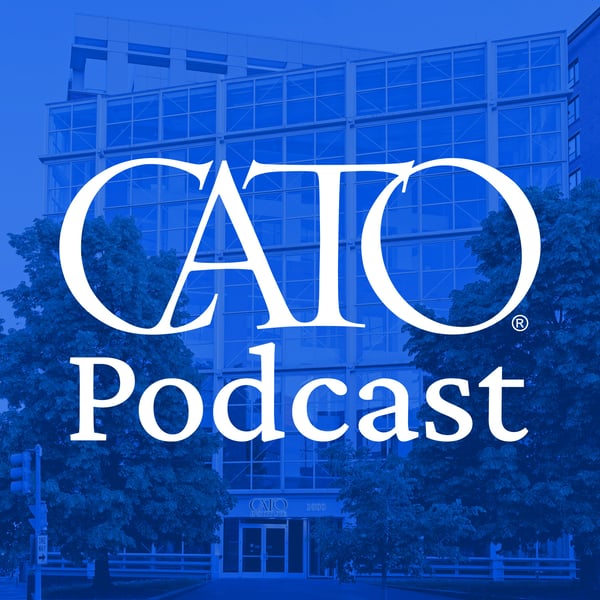Misinformation in the Age of AI
Cato Podcast
Cato Institute
4.6 • 949 Ratings
🗓️ 8 July 2025
⏱️ 31 minutes
🧾️ Download transcript
Summary
Is misinformation really a new crisis—or just the latest chapter in a centuries-old debate over truth, speech, and power? In this episode, Cato Institute’s Jennifer Huddleston and David Inserra unpack the cultural and policy panic surrounding misinformation and disinformation in the age of AI, deepfakes, and viral tweets. Who should decide what counts as truth online? Plus, why humility, media literacy, and a competitive internet might be better solutions than censorship.
Show Notes:
Jennifer Huddleston, "AI and the Future of Our Elections" Testimony, September 27, 2023
Jennifer Huddleston and David Inserra, "Oversight Board Comment on Misinformation and Manipulated Media: The Importance of Free Expression in the Debate over Misinformation" cato.org, October 25, 2023
Jennifer Huddleston, "The Rush to Regulate AI Coule be the Death of Parody" National Review (Online), January 26, 2024
David Inserra and Jennifer Huddleston, "Actually, Tim Walz, the First Amendment Does Protect Misinformation and ‘Hate Speech’" National Review, August 11, 2024
Jennifer Huddleston and Emma Hopp, "What the Past Can Teach Us about Our AI Fears" Reason, October 29, 2024
David Inserra and Brent Skorup, "Comments in Response to FCC “Delete, Delete, Delete” Initiative" cato.org, April 11, 2025
David Inserra, "The Misleading Panic over Misinformation" Policy Analysis No. 999, June 26, 2025
Hosted on Acast. See acast.com/privacy for more information.
Transcript
Click on a timestamp to play from that location
| 0:00.0 | Hi, I'm Jennifer Huddleston, a senior fellow in technology policy at the Cato Institute. |
| 0:08.8 | And I'm David and Sarah, a fellow for free expression in technology at the Cato Institute. |
| 0:12.8 | Today we're here to talk about a recent Cato paper and the overall situation around the panic over misinformation. |
| 0:20.6 | So just think about it. You've probably had |
| 0:22.8 | someone in your family call you at some point about something they've seen online. Maybe it was |
| 0:28.9 | your grandma telling you that she just saw that Elon Musk had tweeted that it's time to drop |
| 0:34.5 | the real big bomb. Donald Trump is in the Epstein files, |
| 0:37.8 | and that is the reason that they have not been made public. |
| 0:41.5 | Some people have called for the government to intervene |
| 0:43.6 | to protect vulnerable citizens from this kind of misinformation. |
| 0:47.8 | But how do we think about this in the context of speech, |
| 0:51.3 | in the context of creativity, |
| 0:56.4 | and in the context of government power in the context of creativity, and in the context of government power. |
| 0:59.3 | And what even is mis and disinformation? |
| 1:05.1 | So to start with, David, the tweet I just read, is this misinformation? |
| 1:10.6 | Or do we need to be concerned about what may be being said on Twitter about the president? |
| 1:13.7 | Yeah, you know, this is a classic case of we don't know. |
| 1:15.1 | This is a developing story. |
| 1:16.9 | We don't have the evidence available to us. |
| 1:20.2 | And a lot of what we see online fits into that mold. |
| 1:22.6 | This is content that it could be misleading. |
| 1:24.7 | It could be partially true, partially false. |
... |
Please login to see the full transcript.
Disclaimer: The podcast and artwork embedded on this page are from Cato Institute, and are the property of its owner and not affiliated with or endorsed by Tapesearch.
Generated transcripts are the property of Cato Institute and are distributed freely under the Fair Use doctrine. Transcripts generated by Tapesearch are not guaranteed to be accurate.
Copyright © Tapesearch 2025.

